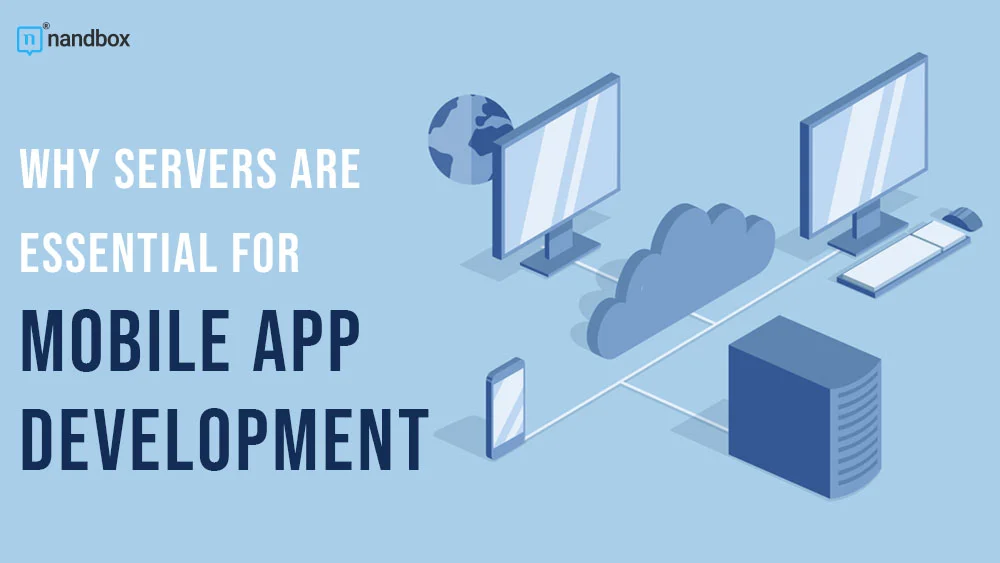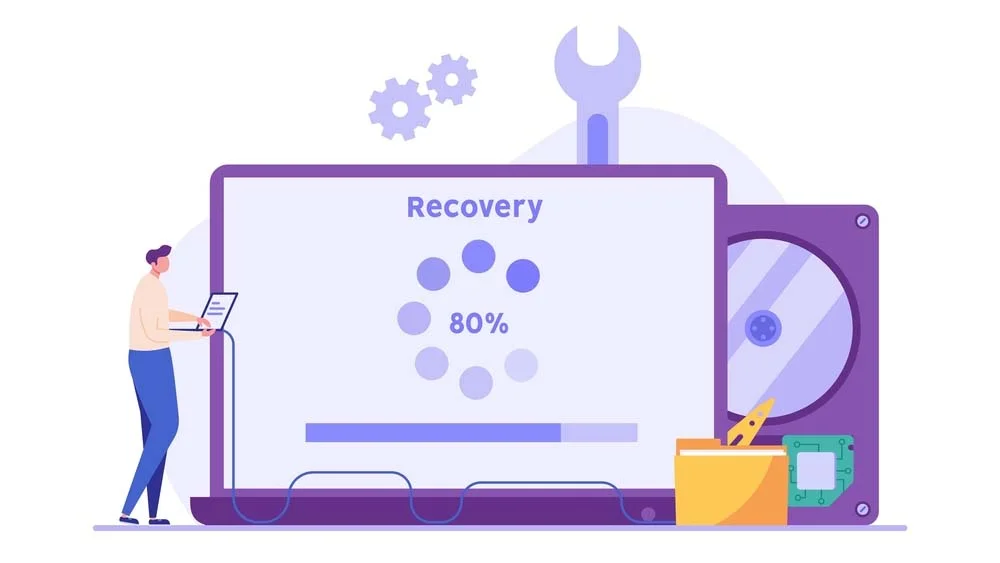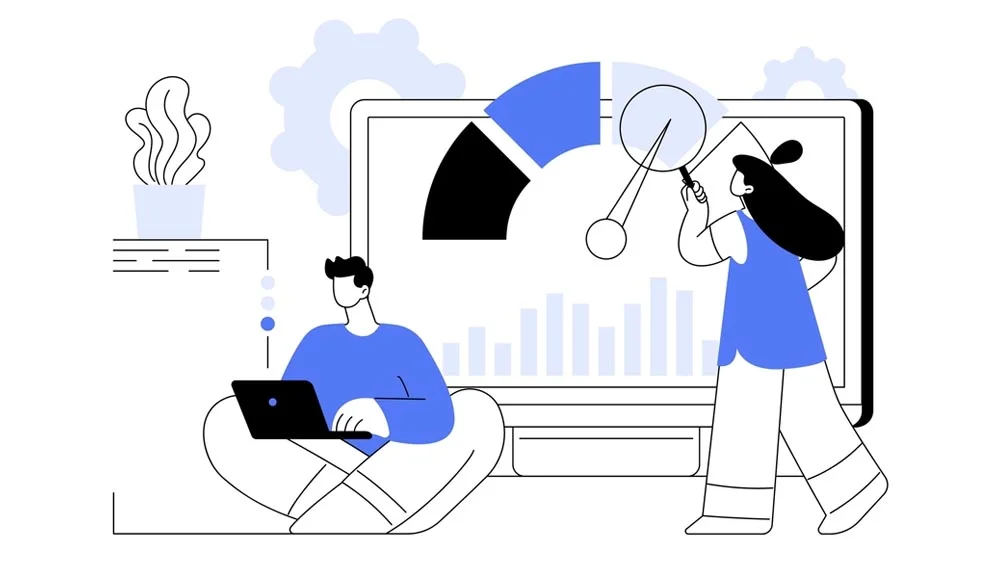Mobile applications have become part and parcel of our lives in this digital age. Starting from social networking to e-commerce, these applications look forward to some robust backend infrastructure to sustain themselves smoothly. At the core of this infrastructure are servers, the unsung heroes of mobile app development. This blog discusses why mobile app servers are not only imperative but actually form the keystone to developing successful and secure mobile apps.
When developing a mobile app, the server infrastructure that supports it is often overlooked. Among the various options available, a 2U rack server stands out as a powerful choice for developers seeking reliability and performance. It offers a perfect balance between space, efficiency, and capacity, making it an essential constituent for any serious app development project. In this blog, we will look into why a 2U Rack Server becomes a necessity while developing a mobile application.
Discover why choosing the right server is pivotal for your development needs and how a 2U rack server might be the perfect fit!
1. Infrastructure Backbone for Scalability in Mobile App Servers
Handling Increased Load
Imagine your app goes viral overnight, causing user numbers to skyrocket. Without a robust server infrastructure, this sudden surge could quickly turn into a nightmare. Servers play a crucial role in managing traffic spikes and accommodating a growing user base effectively. Approximately 70% of mobile app users expect an app to load in 2 seconds or less, highlighting the urgent need for reliable server support. Without it, apps face the risk of slow performance or outages during high traffic, which can result in user loss.
Supporting High Numbers of Concurrent Users
Modern mobile apps must handle thousands, or even millions, of concurrent users without faltering. A well-designed backend infrastructure can support up to 100,000 concurrent users without degrading performance.
You can ensure that your application remains responsive and functional during peak periods using the power of servers.
2. Mobile App Servers: Efficient Data Management and Protection
Centralized Data Storage
Managing and storing vast amounts of data is as critical as handling user load in mobile app development. Servers provide centralized storage for user data, app content, and databases. This centralized approach simplifies data management and retrieval, which is essential for app functionality and user experience.
Backup and Disaster Recovery
Data loss poses a severe risk to businesses, with research showing that 60% of small businesses that experience data loss shut down within six months. This statistic emphasizes the need for robust backup and disaster recovery solutions offered by reliable servers. Servers provide essential features such as regular automated backups, redundant storage systems, and quick recovery options, ensuring that your app’s data remains secure and accessible even during unexpected events.
3. Strengthening Security and Compliance in Mobile App Servers
Safeguarding Against Cyber Threats
Securing data is a fundamental aspect of mobile app development, requiring more than just basic protection. Servers offer advanced security features to defend against cyber threats, including firewalls, intrusion detection systems, and encryption protocols. Implementing these measures at the server level builds a robust defense, protecting both the app and its users from potential attacks.
Ensuring Compliance and Data Privacy
Data privacy has become a critical focus with regulations like GDPR and CCPA. Servers play a vital role in meeting these regulatory requirements by implementing access controls, maintaining data logs, and facilitating secure data transfers. These server-side security features help apps manage user data according to industry standards and legal obligations.
4. Optimizing Performance
Efficient Load management
As your app expands, handling incoming traffic effectively becomes crucial. Servers use load-balancing techniques to distribute traffic across multiple servers, preventing any single server from becoming overloaded. This approach enhances response times, increases reliability, and optimizes resource use.
Enhancing Speed with Caching
Speed is critical for mobile app performance. Implementing caching mechanisms on servers accelerates data retrieval and minimizes latency, which improves the user experience by delivering faster responses. Caching can cut page load times, boosting user satisfaction even during peak traffic.
5. Mobile App Servers: Seamless Integration and Architecture
Efficient API Integration
Servers enable smooth integration with third-party APIs, allowing apps to utilize external services like payment gateways, social media platforms, and analytics tools. This capability helps developers enhance app functionality without the need to recreate these features from scratch.
Supporting Microservices Architecture
Servers also support a microservices architecture, allowing developers to divide app functionalities into smaller, manageable components. These components can be developed, deployed, and scaled independently. This approach improves flexibility, simplifies maintenance, and optimizes resource utilization.
6. Cost Management and Resource Efficiency
Effective Resource Management
Servers provide dynamic allocation of computing resources, automated scaling based on demand, and optimized use of storage and processing power. This control helps avoid overpayment for unused resources during periods of low traffic.
Flexible Pricing Options
Many server providers offer scalable pricing models that adjust with usage. This flexibility allows developers to start with a smaller setup and expand as needed, pay only for the resources they use, and avoid large upfront infrastructure investments.
| Server Type | Pros | Cons | Best For |
| Dedicated Servers | Full control, high performance | Higher cost, requires management | Large-scale apps |
| Cloud Servers | Scalability, Flexibility | Potential security concerns | Startups and apps with varying traffic |
| Virtual Private Servers | Cost-effective, Customizable | Limited resources | Small to medium-sized apps |
| Shared Hosting | Low cost | Limited control, shared resources | Prototypes and very small apps |
This comparison table helps developers choose the right server solution based on their specific needs and budget constraints.
7. Efficient Development and Testing for Mobile App Servers
Dedicated testing environments
Servers provide isolated spaces for development and testing, which allow developers to troubleshoot issues without affecting the live app, test new features in a controlled setting, and simulate various scenarios and user loads. These dedicated environments are vital for maintaining the stability of the production app while facilitating continuous improvements.
Automated deployment processes
Servers also support automated deployment, streamlining the release of updates and new features with minimal manual intervention. This automation reduces human error, accelerates the deployment timeline, and ensures consistency across different environments. By leveraging automated deployment, development teams can focus more on creating new features and less on the complexities of updating the app.
Frequently Asked Questions (FAQs)
What types of servers are best suited for mobile app development?
For mobile app development, dedicated servers or cloud-based servers offer flexibility and scalability. Dedicated servers provide full control over the environment, while cloud servers offer scalability and ease of management.
How do servers impact app performance and user experience?
Servers directly impact app performance by managing load, processing data, and ensuring fast response times. High-performance servers with features like load balancing and caching contribute to a smoother and more reliable user experience.
What are the security risks associated with servers in mobile app development?
Servers can be vulnerable to various security threats, including data breaches and cyberattacks. To mitigate these risks, it’s essential to implement strong security measures such as encryption, firewalls, and regular security audits.
Conclusion
Servers are essential for mobile app development, acting as the backbone for scalability, security, and performance. A high-quality 2U rack server is crucial for managing modern app demands, ensuring effective data security, and seamless integration with various services. Investing in a reliable 2U rack server provides the performance and reliability needed to handle growing user bases, maintain data integrity, and optimize functionality.
As the mobile app landscape evolves, a dependable server becomes even more critical. To future-proof your app and enhance its scalability, security, and performance, consider upgrading to a 2U rack server. Evaluating your current server setup and exploring this solution will benefit both your users and your business.





